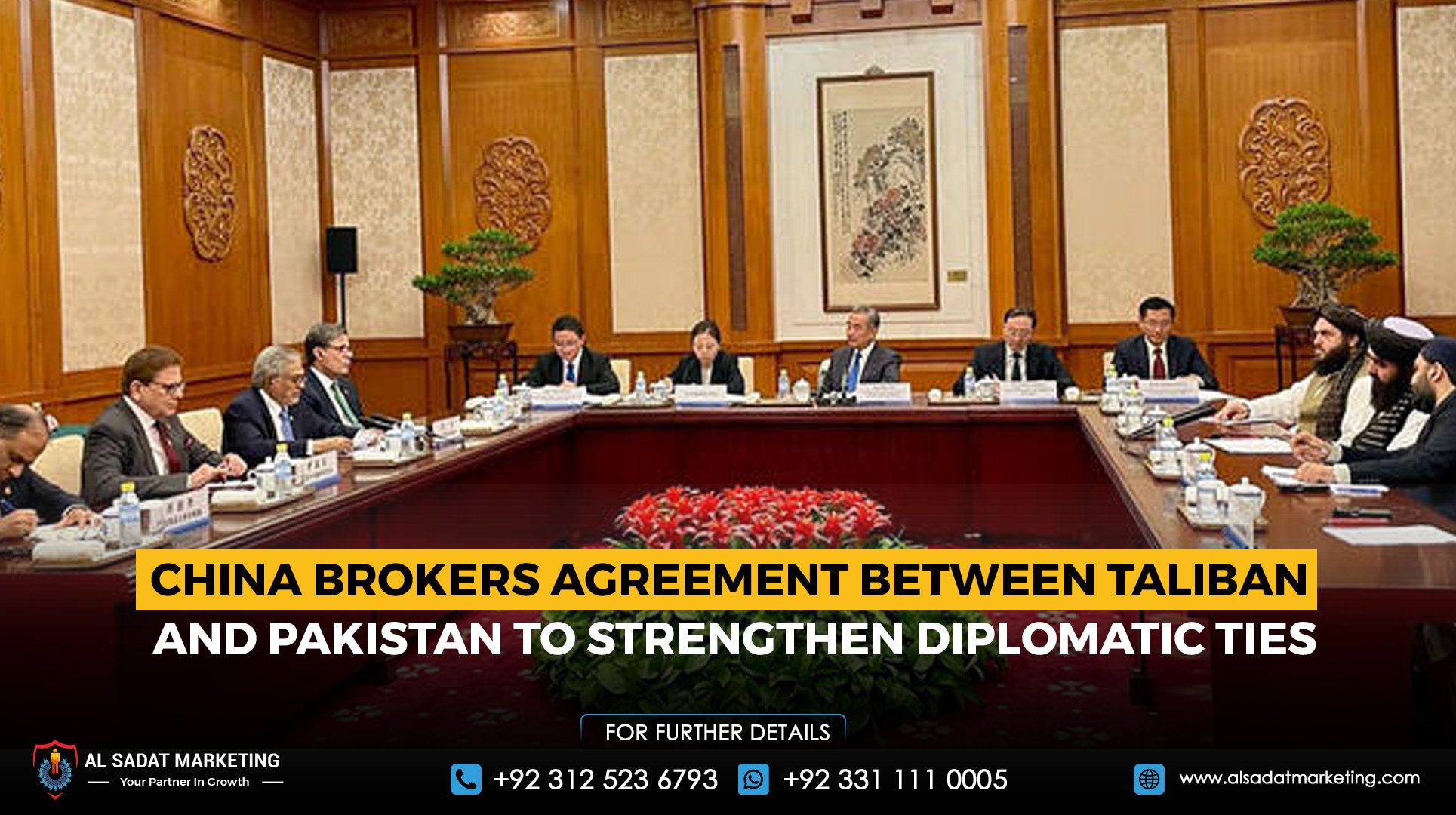ISLAMABAD: In a major step towards repairing strained ties, Pakistan and Afghanistan have agreed in principle to exchange ambassadors, signaling a fresh push to normalise relations. The agreement came during an informal meeting of foreign ministers from Pakistan, China, and Afghanistan in Beijing on Wednesday.
The talks, hosted by China, are part of its broader efforts to ease regional tensions and boost cooperation through the Belt and Road Initiative (BRI).
“Afghanistan and Pakistan showed a clear willingness to restore full diplomatic relations and agreed to appoint ambassadors soon,” said Chinese Foreign Minister Wang Yi in a statement.
He added that China welcomed the move and would continue to support better ties between the two neighbours.
Also Read: UAE Plans to Create One Million Job Opportunities in 2025?
At present, both Pakistan and Afghanistan only have low-level diplomats (chargés d’affaires) in each other’s capitals. The agreement to upgrade this to full ambassadors marks a significant improvement in a relationship long marred by mistrust, border tensions, and militant violence.
CPEC to Be Extended into Afghanistan
Another major development from the Beijing talks was the agreement to extend the China-Pakistan Economic Corridor (CPEC) into Afghanistan. This would bring much-needed infrastructure and investment to Afghanistan and boost regional connectivity.
The Pakistani Foreign Office confirmed the decision, saying, “China and Pakistan reiterated their support for extending CPEC to Afghanistan under the BRI framework.”
China already maintains a full ambassador in Kabul and accepted a Taliban-appointed envoy last year. Other countries such as the UAE and Russia also have diplomatic representation in Afghanistan, even though the Taliban regime is not officially recognized.
Diplomatic Thaw
Tensions between Pakistan and Afghanistan have been high, especially over militant groups like the TTP (Tehrik-i-Taliban Pakistan) that Islamabad claims are operating from Afghan soil. Attacks inside Pakistan reportedly rose by 70% in 2024 due to these groups.
However, recent efforts have helped cool tensions. In March, Pakistan’s special envoy for Afghanistan visited Kabul for the first time in over a year. That was followed by a high-level visit by Foreign Minister Ishaq Dar in April, where both sides agreed to stop militants from using their territories for attacks and to improve trade.
Wednesday’s trilateral meeting builds on that progress. The three countries also committed to cooperate on security and counterterrorism, and to formally restart the China-Afghanistan-Pakistan trilateral dialogue, which had been stalled since 2023.
The sixth round of this dialogue is expected to be held in Kabul soon.
China’s Role and India’s Moves
China stressed that all sides should protect their sovereignty and national dignity, and pursue development paths that suit their own needs. For Beijing, the meeting reflects its use of “mini-multilateralism” — smaller, focused regional meetings — to tackle complex issues.
Meanwhile, India has also been reaching out to the Taliban. Just last week, Indian Foreign Minister S. Jaishankar spoke with Taliban Foreign Minister Amir Khan Muttaqi, a move that highlights New Delhi’s growing interest in Afghan affairs amid tensions between Kabul and Islamabad.
“The road to full normalisation won’t be quick,” said a diplomat familiar with the talks, “but this agreement on ambassadors is a meaningful first step.”










